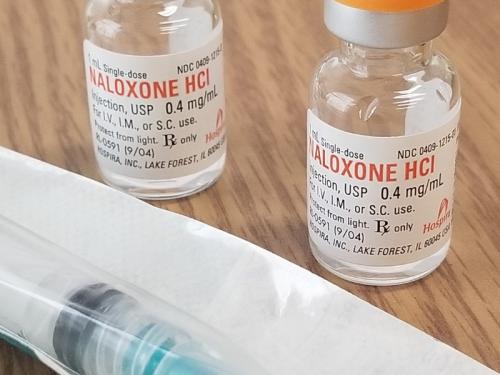Testing strategies to reduce opioid harm

Overdose deaths remain a leading cause of death in the United States, primarily involving opioids. Thanks to participation in a newly established research network, Dr. David Seal has the opportunity to test strategies to better reach those at risk.
Seal, professor in the Department of Social, Behavioral, and Population Sciences, has worked with a team at the University of Wisconsin–Madison for more than two decades in HIV/AIDS-related research. In 2017 the team parlayed their relationships with community-based organizations and both state and local health departments to turn their attention to injection drug use.
The Rural Opioid Project was designed to test the impact of a client-centered prevention home case management model to inform policy and practice. This national multisite project is the largest study ever of people living in rural regions of the US and who use opioid drugs with over 3,000 total participants.
Building on that team’s success, the National Institutes of Health will include Seal and his partners, along with teams at eight other institutions, in the Helping to End Addiction Long-Term, or HEAL, Initiative through the National Institute on Drug Abuse (NIDA).
The teams in the research network will test strategies in different community settings to inform efforts to help save lives. The awards are expected to total approximately $36 million over five years, pending the availability of funds.
More than 107,000 people in the United States died from a drug overdose in 2021, according to provisional data from the U.S. Centers for Disease Control and Prevention. These deaths are largely driven by the proliferation of cheap, potent synthetic drugs like fentanyl contaminating the drug supply, including in heroin, cocaine, methamphetamine, and counterfeit pills.
The Wisconsin study will develop and test mobile/internet tools designed to improve access to harm-reduction services and will enroll participants in both urban and rural regions of Wisconsin. While the study is meant to identify better ways to connect individuals with harm reduction services and, in time, with other health care resources, its long-term goal is one of education and systems change.
Harm reduction is an evidence-based, often life-saving approach that directly engages people who use drugs to prevent overdose, disease transmission and other harms. Researchers test strategies to connect enrolled participants who use drugs with services and treatments and measure the effectiveness of these interventions in reducing overdose deaths and other outcomes.
“This national study is highly significant and will be highly scrutinized as it is the first ever NIH-sanctioned harm reduction research project,” said Seal. “But it is also a great opportunity to inform and change policy around harm reduction in the US.”
